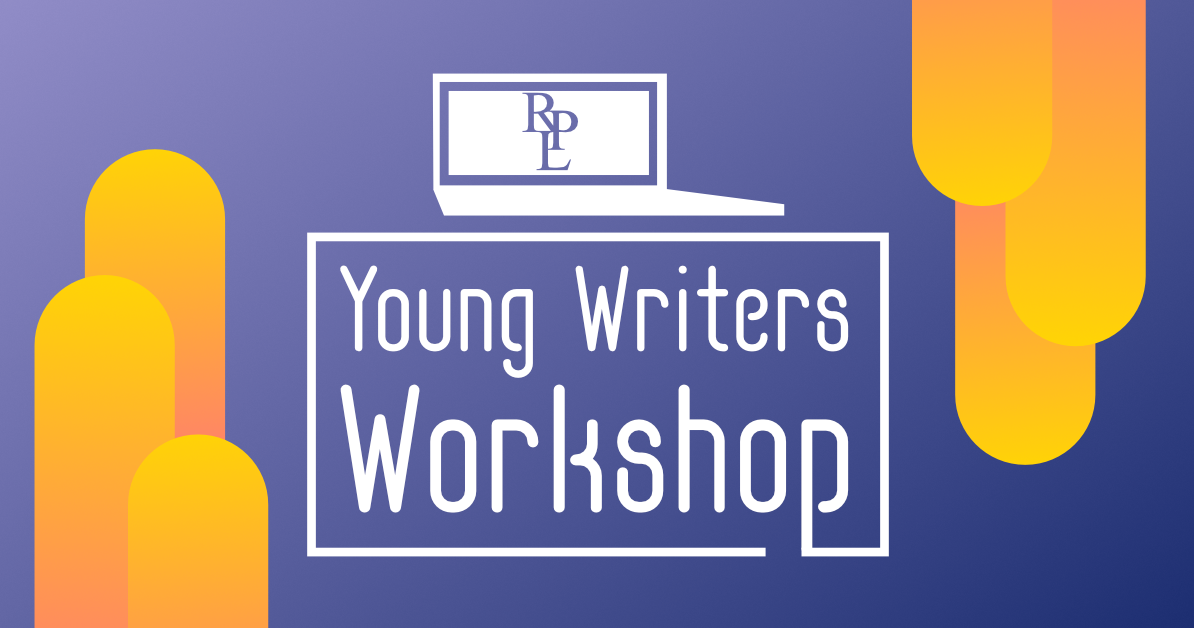Young Writers Workshop

Starting Your Story
Do you have a great idea for a story, but not sure what to do next? Do you think your favorite character got a raw deal, and you know exactly what should have happened instead? Have you ever stared at a blank page and an equally blank mind? We can help!
Here you can find our videos, tips, and writing prompts to help you get started on your author’s journey.
Video 1 - Beginning Your Story
Video 2 - Plotting vs Pantsing
Video 3 - Characters
Video 4 - Writing Style
Putting Pen to Paper
Editing
Dialogue
Genre
Literary Tropes & Devices
Literary Tropes & Devices 2
Proofreading
Writing Tip 1 - Writer's Language
One of the most useful tools for any writer is a strong vocabulary. It is important to be able to use the right words to describe what you are writing. The better your vocabulary, the better you can convey your message to your reader.
With that in mind, there are some essential words that you should know when it comes to writing:
Antagonist – The character in opposition to the protagonist.
Character arc – How a character changes during the course of a story.
Climax – The high point of a story’s action before the ending.
Conflict – Anything in the story that prevents the protagonist from achieving their goals. The main conflict of a story is between the protagonist and the antagonist, but there can be multiple, smaller conflicts throughout.
Dialogue – When two or more characters speak to each other. The exact words stated by characters are always placed in quotation marks.
Genre – The overall style and feeling expressed by the story. Common genres include science fiction, mystery, romance, fantasy, and adventure.
Narrative – The written events of the story (i.e. the actual story itself in its entirety).
Perspective – How the story is told. The most common perspectives in fiction are First Person Perspective (the protagonist is the one telling the story, uses ‘I’ and ‘me’ pronouns) and Third Person Perspective (the story is told from an outside perspective, as told by an observer, uses third person pronouns).
Plot – The overall story. The journey of the characters as they work towards their goals.
Protagonist – The primary character of the story. Note that the protagonist does not always have to be the hero, just the person the readers is following on their journey.
Scene – A single event at a specific time and place in the story. A story is made up of multiple scenes.
Setting – Where the story is taking place. Can also be used for the time period of the story.
Writing Tip 2 - Conveying Tone Through Vocabulary
Following up on the previous tip concerning vocabulary, it is important to recognize how it is possible to change the tone of a sentence by using the proper words. Many words in the English language are synonyms, but convey very different emotions or intentions. For example:
- Run
The verb ‘run’ is straightforward, and simply means the action of moving quickly with your own legs. It is a fairly neutral word, but you can clearly picture it in your mind’s eye. Now, let’s look at some synonyms for ‘run.’
- Scamper
The verb ‘scamper’ also means to move quickly, usually with your own legs. But it also conveys a sense of playfulness. When we say scamper, we tend to think of children or small animals.
- Jog
The verb ‘jog’ also means to move quickly, usually with your own legs. But it also conveys a sense of ease. Someone who is jogging isn’t hurrying; they may be moving quickly, but they’re not rushing.
- Sprint
The verb ‘sprint’ also means to move quickly, usually with your own legs. But it also conveys a sense of speed. Someone who is sprinting is running as fast as they can.
There are plenty of other synonyms for ‘run’: canter, trot, charge, race, dash, dart, and so on. They all have the same basic definition, but choosing different words will completely change the feeling of the action you are describing. Keep this in mind when you are writing, and choose your words accordingly. If an action that you’re describing doesn’t feel right, try swapping some of the words to adjust the feeling and see how it turns out.